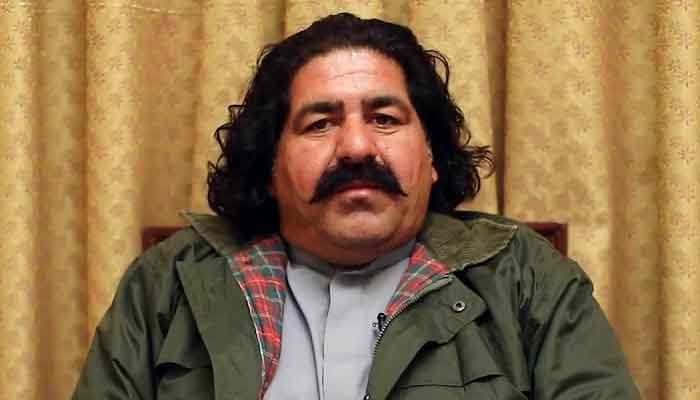In another brazen attempt to curb free speech and the rights of the minorities in Pakistan, Pashtun Tahaffuz Movement (PTM) leader Ali Wazir, a sitting member of parliament, has been remanded to police custody by an anti-terrorism court in Karachi on charges of hate speech. Along with Wazir, four other PTM members Noorullah Tareen, Sher Ayub Hussain, Basirullah and Haji Sher Mehsud have also been detained by the security agencies, triggering massive protests against the Imran Khan government not just in Pakistan but also several parts of Afghanistan and other countries.
A Member of the National Assembly (MNA) from South Waziristan, Wazir has been accused of allegedly using "defamatory, provocative and undesirable language against state institutions and the Pakistan Army" while addressing a rally in Sohrab Goth, a suburban area in the Malir district of Karachi, on December 6. He was arrested from Peshawar last Wednesday, flown to Karachi on Friday and remanded to police custody till December 30 by a Karachi anti-terrorism court on Saturday.
It is not for the first time that the Pashtuns' demand for the protection of their constitutional rights and their peaceful human rights work for the protection of their community have been met with hostility, criminalization and violent reprisals by the Pakistani authorities. Pashtuns in north-west Pakistan have been made especially vulnerable by the so-called war on terror, unwillingly caught up and targeted in the battle between state security forces, the Taliban, and US-Afghanistan regional tensions.
The Pashtun Tahaffuz Movement is a peaceful human rights movement campaigning for de-mining the region and against extra judicial killings, enforced disappearances, discrimination and surveillance of the Pashtun community by the Pakistani authorities. “The PTM has been able to make waves amongst Pakistani society, but the Pakistani government is reluctant to sway in favour of their demands, which can be explained by the fact that the PTM is not only calling out the Pakistani police’s brutality, but they have also charged at the de facto leaders of the country: the military establishment. Indeed, the PTM challenges the military’s integrity and has publicly accused it of not only collaborating with terrorist organisations, but also fermenting them in order to serve its interests,” notes Amsterdam-based European Foundation for South Asian Studies (EFSAS).
Amid growing internal political turmoil, Wazir's arrest has further intensified the anti-government movement in Pakistan. Top leaders of the 11-party Pakistan Democratic Movement (PDM) opposition alliance have termed the move "against democratic traditions" and demanded immediate release of PTM leaders. "It will cause cracks in Pakistan's unity, we are all equal Pakistanis," said Pakistan Muslim League-Nawaz (PML-N) Vice President Maryam Nawaz.
Pakistan Peoples Party (PPP) Chairman Bilawal Bhutto Zardari, whose party rules Sindh, said that holding public meetings was no crime to arrest an elected representative. The footage of Wazir's arrest showing the leader being absolutely clueless about the reasons for his forced detention has also gone viral on social media with #ReleasePTMActivists and #ReleaseAliWazir trending on Pakistani Twitter.
Protest demonstrations have also rocked the country with members of Pashtun Tehreek Movement holding massive rallies in Jani Khel in the Bannu District of Khyber Pakhtunkhwa. The human rights agencies have also stepped in, demanding release of Wazir.
"HRCP is deeply concerned at the systematic way in which Ali Wazir, a sitting MNA, has been singled out consistently on preposterous charges of being 'anti-state'. As a citizen, Mr Wazir has a constitutional right to express his opinions. We are appalled at the manner in which he was arrested and demand that Ali Wazir be unconditionally released," the Human Rights Commission of Pakistan (HRCP) said in a statement.
Pashtun leaders believe that the arrest of PTM leaders is a continuation of the Pakistani government and military's repressive policy. They have made it clear that their struggle and movement for "peace in our land" would continue. "We sent Ali Wazir to Assembly to tell you about our murder and destruction, and Ali Wazir was chosen for that because he was the most affected person. You have hurt our hearts by handcuffing our dead and wounded," Alam Zaib Khan Mahsud, a political and social activist from the 'war zone' Pashtun belt told a gathering.
Mehmood Khan Achakzai, Chairman of the Pashtun Khwa Milli Awami Party, issued a statement Sunday saying "reliable sources" have told him that there is an "imminent threat" to life of Ali Wazir. "I do not say this to create a panic or for the purposes of cheap publicity.
However, I do not say this lightly either. We have been informed by very reliable sources that there is an imminent threat to life of Ali Wazir. His family is very concerned about his well-being. This family has already borne innumerable tragedies. We warn the Government of Sindh, the Chief Minister of Sindh and all the concerned authorities that any harm to the life of Ali Wazir will have unimaginable consequences," he warned. However, irrespective of the widespread criticism, the Pakistani deep state continues to step up its suppression on minorities in the country. Be it the Balochs, Pashtuns or the other minorities, the Imran Khan government has unleashed various state agencies to persecute and harass its own citizens.
"These are people who have experienced killings, displacements, enforced disappearances, ethnic profiling, humiliation, and destruction of livelihoods and way of life. The tormenting experiences of these people were made worse by what they believe to be the indifference and apathy of mainland Pakistan towards their plight," Rafiullah Kakar, a public policy and development specialist from Balochistan, wrote on the plight of Pashtuns in leading Pakistan daily Dawn earlier this year. It is this indifference and apathy which fails to rattle the Pakistani state.




















